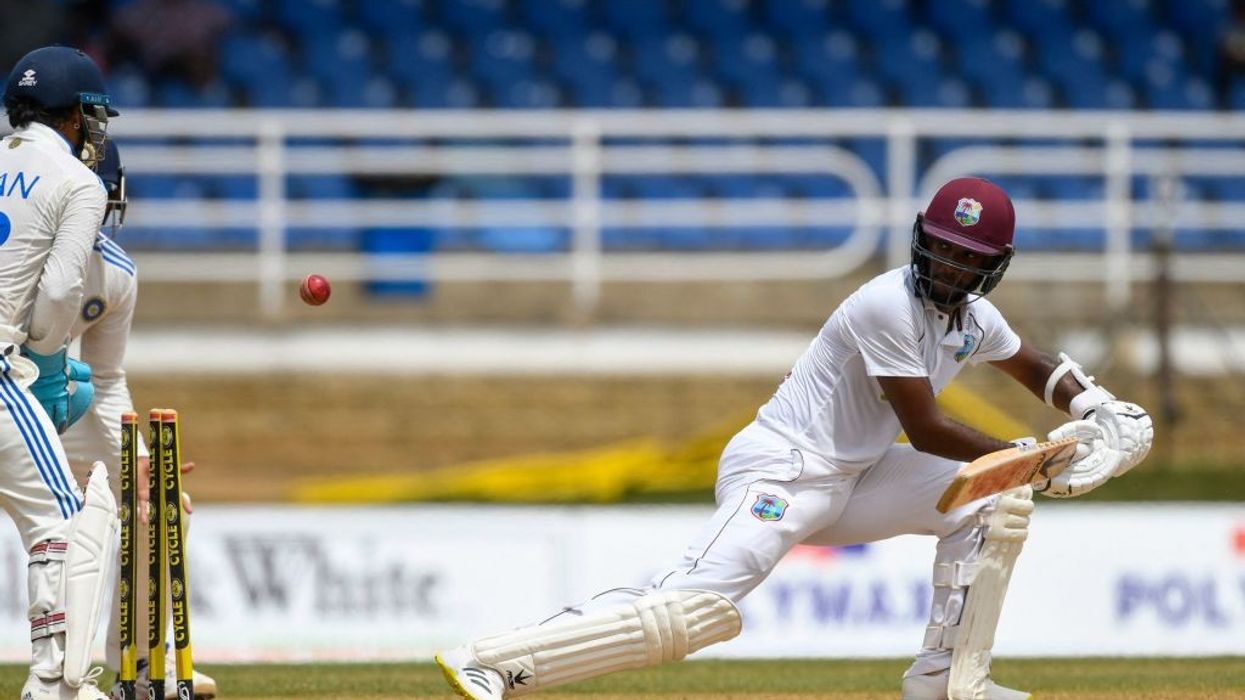A DAY of turgid, rain-interrupted cricket saw the West Indies grinding their way to 229 for five in reply to India's first innings total of 438 at stumps on the third day of the second and final Test at Queen’s Park Oval in Trinidad on Saturday (22).
In adding 143 runs in 65 overs between seasonal showers the cricket certainly wasn't electrifying, although the determination of the home side to avoid a repeat of the capitulation of the first Test meant survival was prioritised over any attempt at entertainment.
Kraigg Brathwaite's innings of 75 typified the home side's purposeful, if unattractive, demeanour in the aftermath of their three-day innings humiliation in Dominica a week earlier.
Never one to be preoccupied with the aesthetics of batsmanship, the West Indies captain spent almost five hours at the crease in facing 235 deliveries, striking five fours and one six before being undone by a familiar foe.
Ravichandran Ashwin dismissed him twice at Windsor Park Stadium and the wily spinner again got the better of the right-hander, bowling the opening batsman between bat and pad midway through the afternoon.
Brathwaite had started the day with debutant Kirk McKenzie with the West Indies well positioned at 86 for one.
They made serene progress almost to the end of the first hour when McKenzie wafted at a wide delivery from fellow debutant Mukesh Kumar to give the 29-year-old his first Test wicket as he edged a catch to wicketkeeper Ishan Kishan.
With only one wicket in each of the first two sessions, India pressed hard for more success at the start of play after tea and were rewarded immediately when the usually attacking Jermaine Blackwood fell to a superb catch by Ajinkya Rahane at slip off left-arm spinner Ravindra Jadeja.
His innings of 20 occupied 92 deliveries.
When Mohammed Siraj uprooted Joshua da Silva's middle stump for his first wicket of the innings at 208 for five, the tourists felt they had the chance for more inroads before the light faded.
But former captain Jason Holder stayed with Alick Athanaze (37 not out) as the young left-hander negotiated a challenging period against the second new ball to carry the West Indies effort into the fourth morning.
"The batting conditions may not have been as tough as in Dominica but given the quality of bowling that they have they still made life difficult for us," said Athanaze at the end of the day.
"It was tricky at the end of the day against the new ball but we were able to hold on. It's no secret that we are trying to rebuild and it's all about enjoying the challenge that we face."
(AFP)
West Indies grind through turgid day against India




